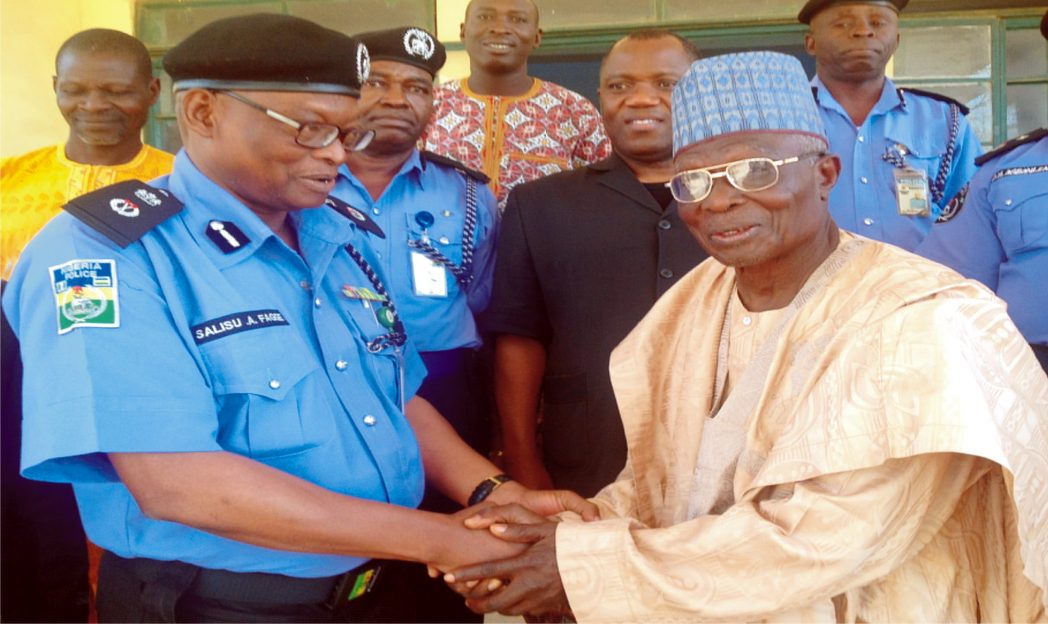News
Suicide Bombers Kill 29 In Kano, Potiskum

Commissioner of Police, Sokoto State, Alhaji Salisu Fage welcoming the Chairman, Christian Association of Nigeria (CAN), Sokoto State Chapter Rev. Ahmadu Manman, during the visit of CAN leadership to State Police Command headquarters in Sokoto, yesterday.
Two suicide bombers yesterday killed scores of passengers and hawkers at the Kano Line motor park on Zaria Road in Kano.
Police commissioner in the state, Ibrahim Idris, who confirmed the blast, said 12 people died, including the two suicide bombers.
Also yesterday, at least 17 people were killed in Yobe state when a blast ripped through a bus in Potiskum, witnesses and rescue workers said, in the latest violence to hit the troubled region.
The explosion happened at the Tashar Dan-Borno motor park on the outskirts of the city immediately after a man put a bag in the boot of the bus and then tried to board.
“The bus had just loaded with passengers on its way to Kano when a huge explosion happened inside the bus at exactly 11:40 am (1040 GMT),” said a driver’s union official at the bus station.
Potiskum, the commercial capital of Yobe state, has been hit repeatedly by bombings, including on Sunday, when a young girl with explosives strapped to her body blew up at a crowded market.
Thirteen dead and 31 injured were initially brought to Potiskum General Hospital after Tuesday’s blast, according to a nurse at the facility, but she added: “Four more died here. So, we have 17 dead and 27 people with injuries.”
The drivers’ union official said it was not immediately clear whether the man who placed the bag in the boot was a suicide bomber or whether the explosives were hidden inside it.
Rescue workers at the scene said that all 12 people on board the bus were killed.
The girl in Sunday’s attack which left seven people dead in Potiskum was thought to be as young as seven, according to multiple witnesses.
Boko Haram Islamists have increasingly used young girls and women as human bombs, with so-called “soft targets” such as markets and bus stations hit regularly.
Both bombings again underlined the severe security challenges facing Nigeria in the run-up to presidential and parliamentary elections on March 28.
The elections were initially scheduled for February 14 but were delayed by six weeks to give the military and its allies more time to secure and stabilise the northeast to allow people to vote.
Waziri Danu, who lives in the area, said of the latest bombing: “I was at a car wash nearby when I heard a huge explosion and saw volleys of fire and smoke coming from the motor park. I and people around rushed to the place and we saw a bus engulfed in flames… It is not likely if anyone in the vehicle has survived.”
Another driver, who also asked not to be identified, said: “We were taking turns to load when this man came. He appeared to be in a hurry.
“He asked if the bus was going to Kano. I said yes. But before he could be screened he dropped his bag in the boot among other luggage and just made to enter the bus.Some people tried to restrain him for the screening but then there was an explosion.”
News
HoS Hails Fubara Over Provision of Accommodation for Permanent Secretaries

News
Allegation of Disrespect to President Tinubu Unfounded — Rivers Government

News
Rivers Government Dismisses Allegations of Disrespect to President Tinubu


